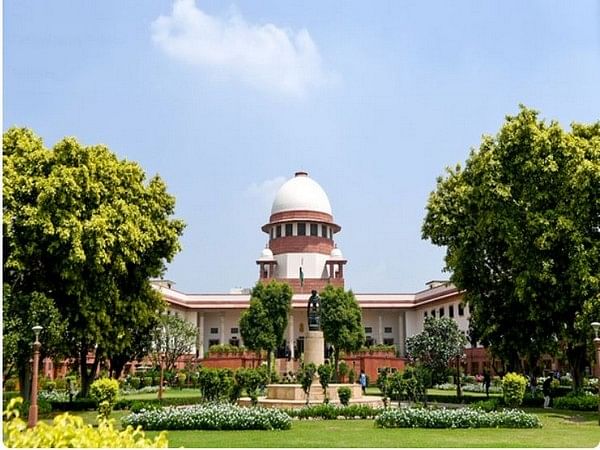New Delhi [India], January 11 (ANI): The Supreme Court on Wednesday said that it would have to find a balance and decide whether the control over services in Delhi should be with the Centre or the Delhi government or a median has to be found.
A five-judge Constitution bench of Chief Justice DY Chandrachud, Justices MR Shah, Krishna Murari, Hima Kohli and PS Narasimha termed “collective responsibility, aid and advice” as bedrocks of democracy.
Solicitor General Tushar Mehta, appearing for the Centre, commenced the submissions and told the bench that he would try to clear the perception which has sought to be created that the Lt Governor is “doing everything”, the officers have allegiance elsewhere and the Delhi government was “just symbolic”.
“Right from 1992 till date, only seven matters have been referred to the President citing the difference between the LG and the Delhi government,” SG said.
He added that a “total of 18,000 files came to the LG as per the law and all files were cleared.”
The apex court referred to the three entries such as public order, police and land on the State list of subjects where the Delhi government cannot legislate as per Article 239AA (Special provisions with respect to Delhi).
It said, “Article 239AA preserves collective responsibility, aid and advice – these are bedrocks of democracy. And three subjects (public order, police and land) have been carved out in national interest. So you need to balance both. The question we have to answer is control over public services. Should control on public services lies exclusively with one, or another, or should there be a median.”
The top court will resume hearing the matter on Thursday.
The top court has to decide to raise legal issues concerning the scope of legislative and executive powers of the Centre and Delhi government over control of services in the national capital.
The case was posted before a Constitution bench after a three-judge bench had in May last year decided to send it to a larger bench on a request by the Central government.
On February 14, 2019, a two-judge Bench of the top court delivered a split verdict on the question of powers of the GNCTD and Union government over services and referred the matter to a three-judge Bench.
While Justice Ashok Bhushan had ruled the Delhi government has no power over administrative services. Justice AK Sikri, however, had said the transfer or posting of officers in top echelons of the bureaucracy (joint director and above) can only be done by the Central government and the view of the lieutenant governor would prevail in case of a difference of opinion for matters relating to other bureaucrats.
The two-judge bench which was hearing pleas on six matters pertaining to a long-running conflict between the Centre and the Delhi government had given a unanimous order on the remaining five issues except the control over services.
Governance of the national capital has witnessed a power struggle between the Centre and the Delhi government since the Aam Aadmi Party (AAP) came to power in 2014.
Prior to February 2019 judgement, a five-judge constitution bench of the Supreme Court had on July 4, 2018, laid down the broad parameters for governance of the national capital. In the landmark verdict, it had unanimously held that Delhi cannot be accorded the status of a state but clipped the powers of the LG saying he has no “independent decision-making power” and has to act on the aid and advice of the elected government.
It had restricted the jurisdiction of the LG to matters pertaining to land, police and public order and on all other matters, it held that the LG would have to act on the aid and advice of the council of ministers. (ANI)
This report is auto-generated from ANI news service. ThePrint holds no responsibility for its content.






